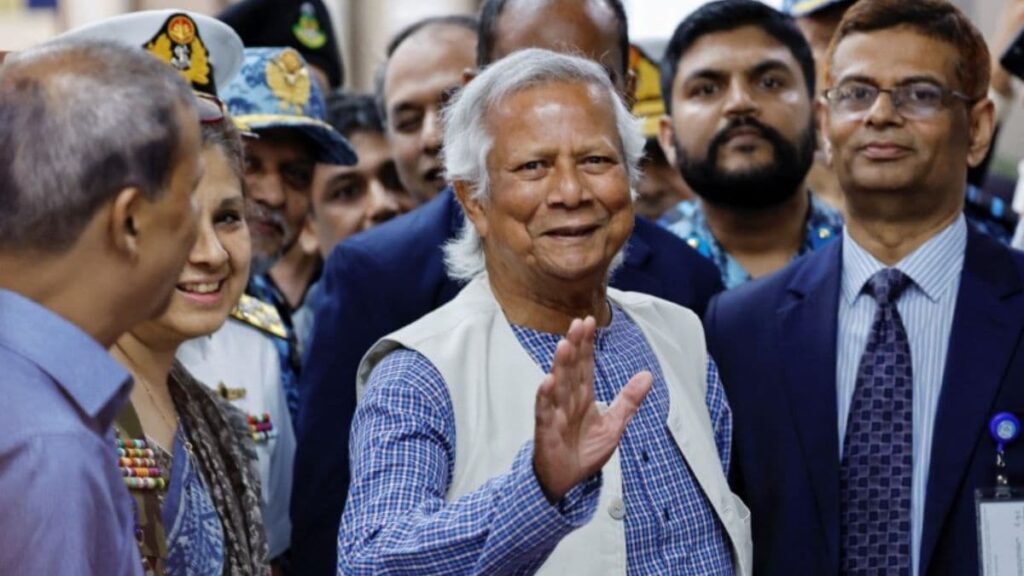As Bangladesh grapples with mounting economic challenges, the IMF has drawn alarming parallels between its revenue collection and that of South Sudan, while the ADB has significantly downgraded its growth forecast to 5.1 per cent for the current fiscal year
read more
The Asian Development Bank (ADB) on Wednesday revised its economic growth forecast for Bangladesh down to 5.1 per cent for the fiscal year 2024-25, a significant drop from the earlier estimate of 6.6 per cent. This reduction primarily stems from supply disruptions linked to political unrest that gripped the nation during July and August 2024. Additionally, the forecast considers the impact of recent floods, which have compounded the challenges facing the economy.
The ADB’s analysis indicates that ongoing political instability, a fragile law-and-order situation and vulnerabilities within the financial sector create a highly uncertain macroeconomic environment. The lender expressed concerns that tight fiscal and monetary policies are likely to suppress consumption and investment demand further, reflecting a broader trend of economic stagnation. Notably, Bangladesh has struggled to achieve growth rates above 6 per cent in the past two fiscal years, recording 5.78 per cent in FY2023 and 5.82 per cent in FY2024.
Inflation and revenue concerns
The economic landscape is further complicated by persistently high inflation, which the ADB predicts could escalate to double digits. Contributing factors include elevated commodity and energy prices and the depreciation of the Bangladeshi Taka. ADB noted that while the current account deficit has narrowed, both exports and imports have declined, signalling underlying economic weaknesses.
Moreover, the International Monetary Fund (IMF) has raised alarms regarding Bangladesh’s revenue collection highlighting that the revenue-to-GDP ratio is alarmingly low is comparable to that of South Sudan, TBS News report reported. During a series of meetings with the finance ministry, the IMF emphasised the urgent need for comprehensive reforms to bolster revenue collection, which is critical for stabilising the country’s finances. With inflation pressures further complicating the fiscal scenario, the finance ministry’s officials have acknowledged that extortion and supply-side issues are major contributors to rising prices. The depreciation of the Taka by 25 per cent following the Russia-Ukraine war has compounded the crisis, leading to price hikes that have exceeded the anticipated 30 per cent.
IMF’s support and reform agenda
In light of these challenges, IMF Managing Director Kristalina Georgieva pledged support for Bangladesh’s reform initiatives, asserting that the country is transforming what she termed ‘Bangladesh 2.0’. Following the student-led uprising that led to the ousting of the previous regime, the interim government, led by Chief Adviser Muhammad Yunus, set up six commissions to recommend vital reforms across key sectors, including election management, civil administration and anti-corruption measures.
According to The Dhaka Tribune, Georgieva noted the IMF’s intention to fast-track financial support for the government, indicating that the lender could initiate a new lending program or extend existing support based on an upcoming report from its team in Dhaka. The IMF is also looking closely at the energy sector, where financial advisers have reported significant subsidies and outstanding arrears that require urgent attention.
Fiscal discipline and structural reforms
The government’s target for a GDP growth rate of 6.75 per cent for FY2025 has been labelled as overly ambitious by many economists, particularly in light of the ongoing economic challenges. The combination of suppressed demand due to high inflation, a declining revenue base and political instability raises significant questions about the feasibility of such growth targets.
To restore macroeconomic stability, the ADB suggests a multifaceted approach: accelerating reforms to enhance revenue generation, stabilising the financial sector through improved interest and exchange rate policies and diversifying the economy. Given the current pressures on external accounts, import contraction and sluggish private investment, the need for immediate and effective measures is clear.
The IMF’s recommendations to improve the tax-GDP ratio and control borrowing to maintain a manageable budget deficit will be critical in navigating the current crisis. With the government actively seeking assistance from various international bodies, including the World Bank and the ADB, it is crucial for Bangladesh to lay the groundwork for sustainable economic recovery.
Navigating a turbulent future
Bangladesh finds itself at a critical juncture, grappling with economic forecasts that reflect the turbulence of the past months. As the interim government pushes forward with its reform agenda amid international scrutiny and support, the stakes could not be higher. Successfully addressing inflation, enhancing revenue collection and stabilising the financial sector are essential for creating an environment conducive to growth.
With the backdrop of political upheaval and the pressing need for structural reforms, the path to economic recovery remains fraught with challenges. However, with strategic interventions and steadfast commitment to reform, Bangladesh can aspire to reclaim its position as one of Asia’s emerging economies. The coming months will be key in determining whether the nation can navigate these turbulent waters and secure a prosperous future.

